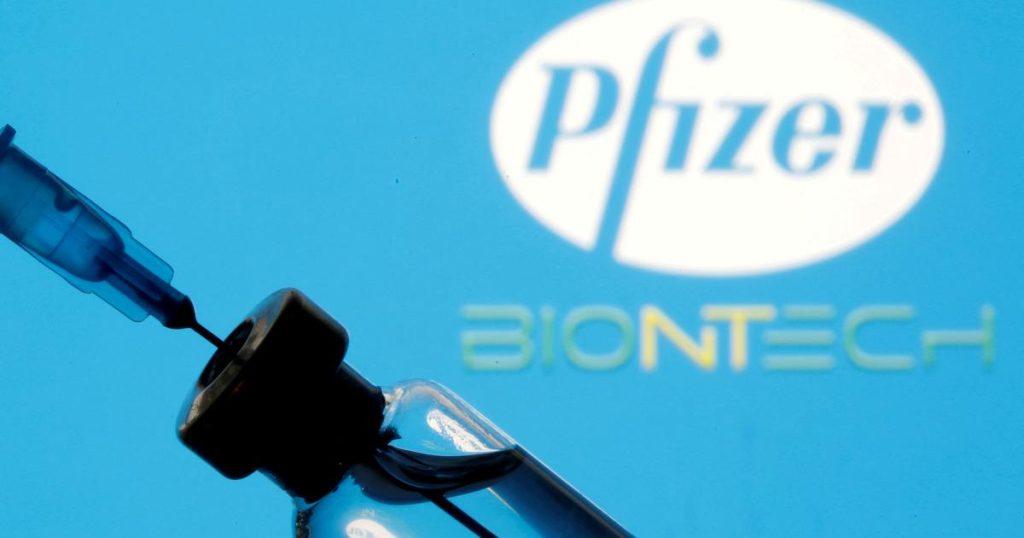different vaccines
It is not yet clear which vaccines Biontech intends to produce there. However, the goal is also to produce the company’s Covid 19 vaccine. “This is the plan that we are likely to convey first,” Shaheen said in an interview published on Wednesday. Reuters – TV.
The vaccine must be produced at cost, the administration asserts. The “BioNTainers” developed by Biontech are equipped to produce various vaccines: in addition to the Covid-19 vaccine from the company and its partner Pfizer, as well as the malaria and tuberculosis vaccines from Biontech, which are still under development.
Biontech already announced last year that it plans to create an mRNA vaccine in Africa. In October, the company signed a memorandum of understanding with the Rwandan government and the Institut Pasteur de Dakar from Senegal. Africa still imports 99 percent of its vaccines.
Biontech presented its innovative production facility at a meeting with the President of the World Health Organization (WHO), Tedros Adhanom Ghebreyesus, the Presidents of Senegal, Rwanda and Ghana, the Director of the Pan African Health Organization, CDC in Africa, John Nkengasong, and the Minister of Development. Svenja Schulz at her location in Marburg, Hessen. mRNA production facilities are to be established in Africa in partner countries Senegal, Rwanda and possibly also South Africa. A new project in Ghana aims to support production with packaging and processing capabilities.
On-site production
For the Covid-19 vaccine, the company acquired its first production partner in Africa last summer with South Africa’s Biovac. However, this will only lead to the last step, ie packaging. In BioNTainer it should now also be possible to produce mRNA in situ.
The plant consists of a total of twelve containers, each twelve meters in length, for the production of the active ingredient and the ready-to-fill vaccine, and the production capacity will initially be up to 50 million doses of Covid vaccine per year.
Local partners have to take care of the packaging process. Local partners must also provide infrastructure such as connection to the electricity grid and water supply. Biontech initially wants to operate the same production facilities and at the same time train staff and experts on site, but also at its Marburg site.
“In any case, the goal is to ensure that in the long term we can hand over responsibility to local partners,” Shaheen stressed. That may be the case in two to three years, said Sierk Poetting, COO of Biontech.
Criticism of Getting Vaccines
Many countries and NGOs have criticized the fact that manufacturers of Covid-19 vaccines do not release and claim their patents in order to achieve better access to vaccines worldwide. But Shaheen sees his project as the fastest possible solution to bringing the company’s technology to Africa. And Boyting emphasized that transforming an existing system, for example, would take much longer.
On the other hand, aid organization Doctors Without Borders criticized the fact that it identified in a study 120 pharmaceutical companies in the Global South that could start producing mRNA vaccines within months if Biontech agreed to transfer the technology. “It is unacceptable that Biontech, along with other pharmaceutical giants, ignore the WHO mRNA Center in Africa, which stands ready to produce vaccines and expand production, in favor of a Biontech-controlled vaccine container unit that will only be available in the Development Oxfam that more than a year will produce vaccines.
However, Biontech does not want to defend itself against potential vaccine replicas. Shaheen said in an interview with Reuters when asked if he would take legal action against copies made by organizations in developing countries. Competitor Moderna already announced in 2020 that it does not want to impose any patents during the pandemic.

“Food practitioner. Bacon guru. Infuriatingly humble zombie enthusiast. Total student.”








More Stories
Kyiv: Russian Kursk offensive halted
US Presidential Election: Former US Government Officials Warn Against Donald Trump's Election
Netherlands wants to leave asylum system